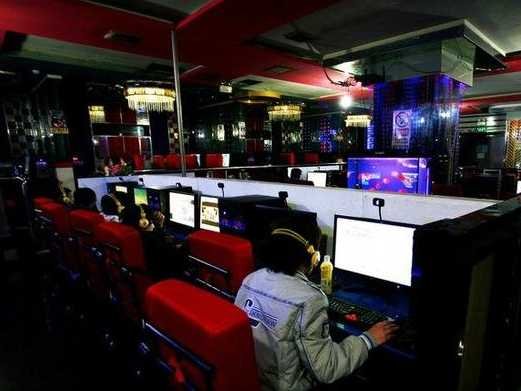|
|
|
China Orders Video Web Sites
to Close
 By MIN LEE – 11 hours ago HONG KONG (AP) — China will shut down or punish dozens of video-sharing Web sites for carrying content deemed pornographic, violent or a threat to national security under rules that tighten Internet controls, a regulator said Friday. The announcement came as Chinese Web surfers were blocked from seeing foreign sites with video about protests in Tibet. The new order did not mention the anti-government demonstrations or China's resulting crackdown. One of China's most popular video-sharing sites, Tudou.com, was among those penalized, the State Administration of Radio, Film and Television said. It gave no details of Tudou's violation or penalty. Other major competitors such as Youku.com and 56.com were not cited. Rules that took effect Jan. 31 ban Chinese sites from distributing online video that involves national secrets, hurts the reputation of China, disrupts social stability or promotes pornography. Web sites are required to delete and report such content. Communist authorities have also tightened controls on Chinese media ahead of this summer's Beijing Olympics in hopes of stopping content that might tarnish a national prestige event. In the recent sweep, regulators ordered 25 Web sites to shut down and will punish 32 others following a two-month investigation, the administration said on its Web site. It gave no details of penalties and phone calls to the office were not answered. The companies knew the penalties were coming, and they do not appear to be connected to efforts to block footage of the protests in Tibet, said Duncan Clark, managing director of BDA China Ltd., a Beijing consulting firm. A Tudou.com vice president, Dan Brody, said the site received a warning. He declined further comment. The industry has grown quickly as a source of news in a country where the government owns all newspapers and broadcasters and enforces the ruling Communist Party's censorship guidelines. Some sites say they get 100 million visitors a day, an audience that rivals that of the biggest state television channels. Chinese regulators see the profit potential for video-sharing and have tried to strike a balance between enforcing censorship and letting fast-growing sites compete for visitors. "It's niche no longer, so the party takes the view that it's mass media, so it has to be subject to the same controls," Clark said. The government announced in December that all video-sharing sites had to be state-owned. But it backed off following warnings that would stifle the industry and said any properly licensed company already operating could continue. Chinese Web surfers have recently been blocked from seeing YouTube after video about the Tibet protests appeared on the popular U.S. site. Foreign Web sites run by news organizations and human rights groups are regularly blocked when they carry sensitive information. The potential for video-sharing sites to embarrass the government was highlighted in December when a sportscaster grabbed the microphone and accused her husband of adultery at a state TV event to announce Olympics coverage plans. A video of the Dec. 28 event appeared on dozens of Web sites in China and abroad. Tudou said it was one of the site's most-watched items. |
| Related News: |
|
15 hours ago HONG KONG (AP) — China has ordered more than two dozen video entertainment Web sites to shut down under new rules governing such sites, a broadcast regulator said on its Web site Friday. The new rules, which took effect Jan. 31, bans providers from broadcasting video that involves national secrets, hurts the reputation of China, disrupts social stability or promotes pornography. Providers are required to delete and report such content under the rules. The State Administration of Radio, Film and Television, or SARFT, said in a statement on its Web site Friday that officials have completed a two-month audit on video entertainment and video sharing Web sites based on the new rules and decided to shut down 25. Another 32 have been slated to be "punished" — although it wasn't immediately clear what that entailed. Popular video sharing Web site Tudou.com was one of those listed for punishment. The list included few major players. SARFT said in its statement dated Thursday that most
of the punished sites broadcast video containing pornography or violence,
or showed movies or documentaries that "endangered national security and
national interest."
SOURCE: http://ap.google.com/article/ALeqM5icR8HXvp5Ke6b1AVqREmk_chVWYAD8VHLCQ80 |
|
March 21, 2008 8:11 a.m. EST
Hong Kong, China (AHN) - The Chinese government said Friday that it has ordered 25 Web sites carrying objectionable videos to close with more than two dozen online video providers targeted for future action, reports said Friday. China's Administration of Radio, Film and Television said the sites must delete and report videos that touch national security, upset stability or harm the nation's reputation. The action follows a Jan. 31 government edict that would ban offending video sites. Friday's move is not seen to be connected to China's efforts to block videos of violent unrest in Tibet. Among the sites slated for shutdown is Tudou.com, described by one China consultant as the edgiest among the many video sites, including YouTube, operating in the country. China, which is preparing for this year's international Olympic games in Beijing, has 210 Internet users and is expected to top the U.S. this year for the largest online population. |
|
Internet users in China were blocked from seeing YouTube.com on Sunday after dozens of videos about protests in Tibet appeared on the site. 'Chinese leaders encourage Internet use for education and business but use online filters to block access to material considered subversive or pornographic. Foreign Web sites run by news organizations and human rights groups are regularly blocked if they carry sensitive information. Operators of China-based online bulletin boards are required to monitor their content and enforce censorship.' The blocking added to the communist government's efforts to control what the public saw and heard about protests that erupted Friday in the Tibetan capital, Lhasa, against Chinese rule. SOURCE: http://yro.slashdot.org/article.pl?sid=08/03/16/2033210&from=rss |
|
The online video sharing service
blocked in China
By Bogdan Popa, Security and
Search Engines Editor
China is that kind of country which today praises your technology but tomorrow bans it because a piece of content appearing on it offended the country's authorities. It happened again today when it seems like YouTube became unavailable for the local consumers who get the famous "The server is taking too long to respond" error. According to Techworld.nl, lots of Chinese users encountered this error but the Mountain View company didn't issue a statement about this problem. However, it might be only a server glitch or maybe one of the Internet service providers is affected by a problem with their connection. However, the same source reports that other technologies which were reported as banned in China re-became available. Blogger, Google's blog technology which was blocked in the past due to some insulting blog posts that appeared on it, is now available to all the users but nobody said anything about it until now. Moreover, Flickr, the Yahoo photo sharing technology which was also banned in China, was restored and can be accessed by anyone who lives in the Asian country. The folks from Techworld.nl tried to explain the ban: "the current blocking may be related to the Communist Party Congress, which began Oct. 15 in Beijing and ends Sunday. Held once every five years, the meeting is the Chinese government's most important political gathering, used to create five-year plans, which are the bedrock of China's centrally-planned economy. It is also often used to reshuffle government positions or for leaders to consolidate their power." The Chinese authorities are extremely exigent when it comes to the content available to the local residents, a lot of websites being banned due to offensive content appearing on the web. In addition, the local government implemented some virtual cops to patrol the portals and warn users every time they try to access prohibited content SOURCE: Softpedia |
| FAIR USE NOTICE: This page contains copyrighted material the use of which has not been specifically authorized by the copyright owner. Pegasus Research Consortium distributes this material without profit to those who have expressed a prior interest in receiving the included information for research and educational purposes. We believe this constitutes a fair use of any such copyrighted material as provided for in 17 U.S.C § 107. If you wish to use copyrighted material from this site for purposes of your own that go beyond fair use, you must obtain permission from the copyright owner. |
|
|

